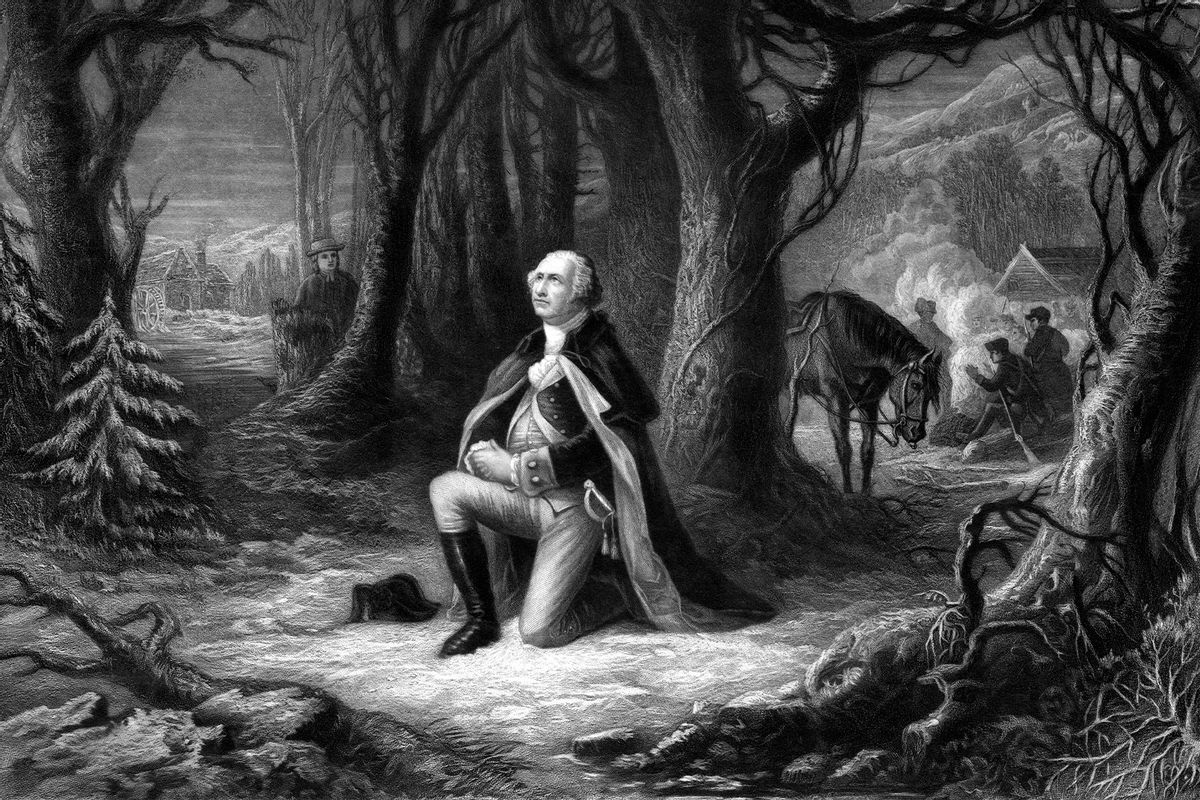Let’s follow up on yesterday’s post here, with a couple more items on the same general topic.
- Mike Lofgren at Salon about the history of right-wing fake history;
- Texas Tribune about David Barton;
- And closing comments about theme parks and cos-play.

Salon, Mike Lofgren, 4 Nov 2023: Right-wing fake history is making a big comeback — but it never went away, subtitled “We’re a Christian nation! The Civil War wasn’t about slavery! Fighting Hitler was a mistake! The lies run deep”
Beginning with two quotations.
Who controls the past controls the future; who controls the present controls the past
— George Orwell, “1984”The historian is a prophet looking backwards.
— Friedrich von Schlegel, “Philosophical Fragments”
Longish piece (13 screens on my monitor). I’ve acknowledged before how every historian has a bias of some sort, but never so nakedly as when conservatives rewrite history to their own ends. I’ll quote the opening, summarizing paragraphs.
The phonetic resemblance of the word “history” to “story,” which can be anything from a factual narrative to a fairy tale, should warn us about the pretended objectivity of any interpretation of past events. The ambiguous nature of the discipline is even more obvious in foreign languages: In German, “history” and “story” are the same word, Geschichte. The French word histoire also does double duty; “Quelle histoire!” means “what a story!” but inevitably conveys a subtext of doubtful credibility.
It is hardly surprising that ideologues are tempted to hijack history to vindicate their worldview; the interpretive nature of the field makes it vulnerable to misappropriation in a way that math or physics, generally speaking, are not. As we have seen in Florida, Texas and other laboratories of autocracy, once Republicans obtain unified control of government, they are compulsively driven to monkey with the history curricula of the public schools.
This flare-up of officially sanctioned historical fiction (“slavery taught useful skills”) is just the most recent example of the long struggle over who gets to tell us who we are. The desire to seize history and manipulate it to flatter present-day conservatives and help them feel they are the culmination of an historical inevitability, while their opponents are doomed to defeat, is what motivates the historical polemics on the far right.
A glance through the catalog of Regnery or almost any other conservative or evangelical publishing house will reveal works of “history” covering just about every aspect of America, but they tend to concentrate on three eras. These eras were the key inflection points in the development of the United States.
The first of those is America at its inception. What is America supposed to be? Who gets to rule? What is the cultural foundation of the country? Who were the so-called founding fathers, and what were their intentions?
The second theme is America at its bloodiest moment of crisis, the Civil War. What was the war about, and what was the role of slavery, the most peculiar institution in all American history? Who were the heroes, and who were the villains?
Finally comes the great crisis of the 20th century, the Great Depression and World War II. Was it good or bad that the federal government assumed greater responsibility for the well-being of its citizens? Which economic theory would have worked best to end the Depression? Was a world war against fascism necessary to defend freedom, or a dangerous entanglement America should have avoided?
And then the article goes into considerable detail about those three themes: The pious Founding Fathers fraud; The uncivil war on historical truth; Franklin D. Roosevelt: the archfiend in peace and war. Along the way, on the first theme:
The best-known and most influential of contemporary pseudo-historians to take this approach is David Barton, whose history qualifications consist of a BA in religious education from Oral Roberts University. Among his more risible claims is that 29 of the 56 signers of the Declaration of Independence were lay ministers. This is technically known as a lie; only one was. Likewise his claim that the Constitution was derived verbatim from Scripture. Given Barton’s appeals to religious prejudice and his attacks on minorities, the Southern Poverty Law Center has profiled him as a bigot.
Nevertheless, Barton remains an influence, with Republican operatives like Mike Huckabee and Newt Gingrich endorsing him. His 2012 book “The Jefferson Lies” was a New York Times bestseller — until fact-checking by authentic Jefferson scholars found so many outright falsehoods that the publisher finally withdrew the book. But no doubt thousands of children afflicted by home schooling or attendance at Christian academies are being indoctrinated with Barton’s lies to this day.
Then the writer asks, Why does it matter? (The existential epistemological question.) And he summarizes the right’s “bad ideas-industrial complex.”
The paradox is this: Their ideas are not supported by facts, evidence or empirically derived data. As Kellyanne Conway put it, they are “alternative facts.” Saying that the Civil War wasn’t about slavery, the death camps never existed and Donald Trump was duly elected in 2020 are all symptoms of epistemological nihilism: If literally nothing can be proved, let’s repeat our version over and over while coercing schoolchildren to memorize it at taxpayer expense.
The current political struggle, whether at the ballot box or in the pages of real or imagined history, is not just a struggle for the country. It is a struggle over the nature of reality itself.
\

The writer links to another piece of his, from Common Dreams in 2019: Extraordinary Popular Delusions, subtitled “How childish belief masquerades as folk wisdom and warps our politics.”
As Kurt Andersen exhaustively describes in his book Fantasyland: How America Went Haywire, America has always been fertile soil for silly or crank beliefs. And given the whole “common man” rigmarole that has become an integral part of the national creed, every manner of unfounded belief that wouldn’t survive three seconds’ analysis has become folk wisdom or bogus “common sense.”
(I have the Andersen book but have not read it.)
Lofgren recalls some from the 1950s: About seat belts (safer to be thrown from the car!), athletes not drinking water, cigarettes, x-raying feet at the shoe store.
And modern ones: protest voting to send a message; the need to shake things up; vote the ins out and the outs in; why the government should balance its budget like families do; the need for common sense solutions.
Liberals often tut-tut about “ignorance,” meaning obliviousness to facts. It is certainly that, but it is also something more deeply troubling and less amenable to correction: a systematic corruption of the power of reason and a renunciation of critical and analytical thinking. There is no need to belabor the point about which interests in our society benefit from this intellectual deformation.
I, of course, have aligned “systematic corruption of the power of reason and a renunciation of critical and analytical thinking” with religion. In particular, with Biblical fundamentalism. You cannot “believe” all those stories in the Bible, full of contradictions and challenges to reality, without abandoning your power of reason, of deriving conclusions based on evidence, not beliefs.
\\\
Texas Tribune, 3 Nov 2023 (via): Texas activist David Barton wants to end separation of church and state. He has the ear of the new U.S. House speaker.
For nearly four decades, Texas activist David Barton has barnstormed statehouses and pulpits across the nation, arguing that the separation between church and state is a myth and that America should be run as a Christian nation.
Now, he’s closer to power than perhaps ever before.
One day after little-known Republican U.S. Rep. Mike Johnson of Louisiana was elected as the new House speaker last week, Barton said on a podcast that he was already discussing staffing with Johnson, his longtime ally in deeply conservative, Christian causes.
…
Barton, a self-styled “amateur historian,” has for years been debunked and ridiculed by actual historians and scholars, who note that he has no formal training and that his work is filled with selective quotes, mischaracterizations and inaccuracies — critiques that Barton has claimed are mere attacks on his faith. He has been accused of whitewashing the Founding Fathers — particularly, their slave owning — to fit his narrative of a God-ordained nation. He has acknowledged using unconfirmed quotes from historical figures. And Barton’s 2012 book, “The Jefferson Lies,” was so widely panned by Christian academics that it prompted a separate book, “Getting Jefferson Right,” to debunk all of his inaccuracies, and was later pulled by its Christian publisher because “the basic truths just were not there.”
It’s sad that so many people still believe what David Barton has to say — they *want* to believe, and in some deep epistemological sense, maybe it doesn’t matter. It’s like they’re living in a theme park, or doing cos-play, separate from the reality of the world. But the reality of the world will catch up with them, in this age of global, existential, threats.

:quality(75)/https://static.texastribune.org/media/files/ce3304c12c048d392c33fa8f29b1eb09/BD%20INC%20Barton%20David%202012)




